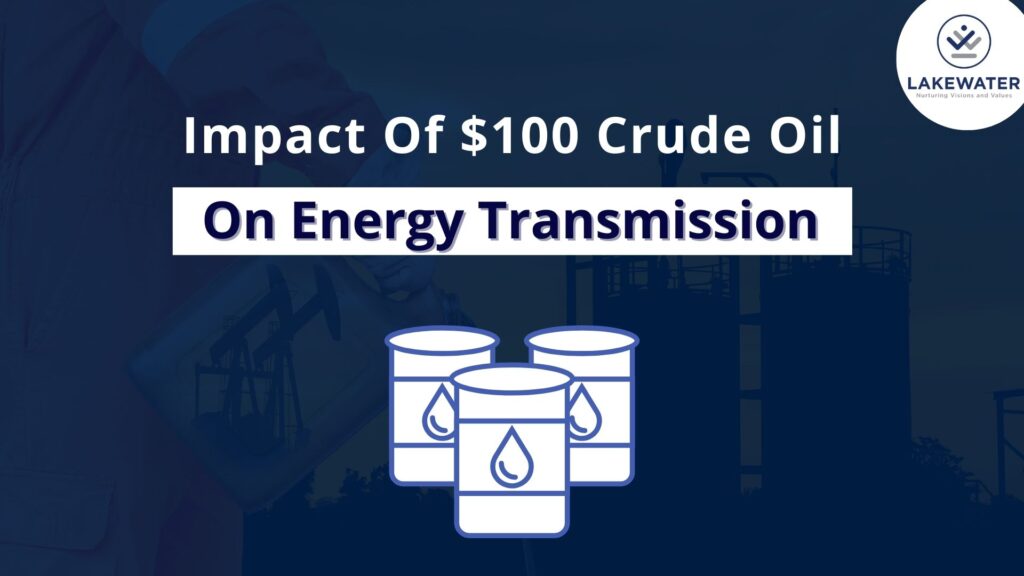The surge in crudeoilprices in the recent term has made us rethink its effect on energy transition. One may think that whenever a natural resource has such volatility associated with its pricing, we as consumers always tend to find alternate energy sources that are more cost-efficient & sourced as GreenEnergy. Well, that might not be the case when crude oil is concerned.
There are many reasons that Energy Transition in today’s world is still far from being achieved from just the price volatility of crude oil. Let’s understand some of the significant repercussions that may unwind due to the rising price of crude oil above $100.
1. It may encourage companies to fill in the crude supply with more quantities so that the economics works out & the prices get back to normal again. It’s been said that in the US, companies are already planning to increase their oil production to 13.88 mln BPD in 2034, which is far above the last recorded high of 2019 of 12.25 mln (US Energy Information Administration).
2. Be it paints or infrastructure, multiple industries are dependent on crude oil. Expensive crude oil will raise inflation, prompting central banks to increase interest rates. This will raise the cost of procuring capital for everyone, including renewable companies. Hence, the overall cost of acquiring solar & wind plants will be affected. The oil companies will also get affected due to such regulations, but as the prices are discounting the central part, they will have fewer requirements to visit the debt markets. High prices would only accelerate this trend, not slow it down.
Most of us believe that crude oil will impact the sales of cars. However, if we reflect back to 2021, a year where the prices of crude oil shot up from $50 to almost $80, sales of sport utility vehicles (high consuming oil) were to reach 45% of global car sales, which would set a record for both volume and market share, according to the IEA. Analysts from various studies have relevant data supporting the fact that private and commercial commuting vehicles only consume 20 – 25% of the total world’s oil.
Now that we have a situation like the war in Ukraine that has made the prices soaring again, the most prominent European importers of Russian gas, namely Germany and Italy, are considering ramping up coal plants even as they build more renewable for the long term.
The energy transition isn’t going to be an easy way and will have pitfalls. Looking at the long term, the only way out is to be less dependent on fossil fuels. And, when something disruptive like this happens, “it creates fragmentation within countries and fragmentation among countries”.




